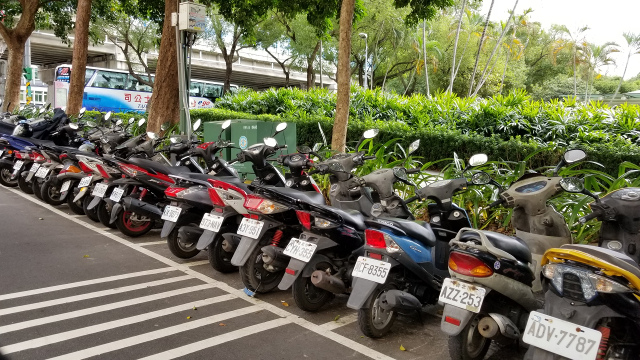Abraham Lincoln’s second inauguration speech was not received at the
time with great joy. He refused to take advantage of the Union’s
situation where a win was virtually certain and the Confederacy was on
its knees. Instead, he focused on the future.
With malice toward none, with charity for all, with firmness in the
right as God gives us to see the right, let us strive on to finish the
work we are in, to bind up the nation’s wounds, to care for him who
shall have borne the battle and for his widow and his orphan, to do
all which may achieve and cherish a just and lasting peace among
ourselves and with all nations.
As a wise and intelligent leader, he was focused on what the future
would bring to a country exhausted by war to begin the slow process to
reunite it with common goals. One may imagine he knew very well it
would take decades or more to heal the wounds wrought by the war and
the philosophical disagreements that caused it.
In the face of this week’s armed insurrection in Washington DC, our
country finds itself in some ways in a similar situation that of
Lincoln’s time in April 10 1865. We have philosophical disagreements
between two major blocs: those who believe in equality and equity of
opportunity for everyone and those who believe some members of society
are entitled to these things but others are less so. Despite the fact
that no years-long war has been fought, the struggle over this has
consumed much of the energy and passion of both factions for all of
this country’s history.
Human societies thrive when they channel the power of the talents,
passions, and energies of educated and thoughtful people. In some
cases this is done by gathering together around a single purpose like
sending explorers to the moon or building a global network for
instantaneous communications or fighting the spread of fascism. All of
these examples yielded enormous eventual benefits in addition to
achieving their goals, earning rich dividends for all of humanity.
Human societies have always divided along racial, ideological, and
philosophical lines – not for the progressive and useful purpose of
debate of the merits of these divergent ways of thinking, but instead
to enhance the power of one side’s view by diminishing that of its
opponents. This is probably endemic in the human psyche and continues
today through some animal trait inherent in our multi-layered minds.
Raw instinct and psychological propensity must not drive a modern
civilization. For example, despite the built-in envy one might feel
for another’s property or place in the world, in our society that envy
must be held in check. Without this, our animal selves would
immediately tear our civilization apart.
One such instinct manifests itself in an unconscious yearning for the
“good old days” when we were all younger and the world was a simpler
place. Historians have shown in many ways that this perception is
largely false. The “good old days” are neither simpler, better, nor
even “good” compared to today.
Another animal drive is the fear of difference – xenophobia.
Unchecked, this leads to reflex suspicion and rejection of everything
and everyone that is strange to our experience. Taken to its logical
conclusion, this drive leads to ostracism, stagnation from lack of new
“blood” and ideas and ways of viewing the world, and eventual death to
our civilization. If we truly followed this path we would all die - if
not from wars, then from starvation and stagnation and hopelessness.
Xenophobia has long been used by powerful and charismatic people to
exert control others – and usually with a tragic outcome.
Progress toward a greater society will rest on several pillars. First,
we must be vigilant to detect and thwart our tendency toward
animalistic behaviors dividing us and limiting opportunities for our
fellow humans. We need to see division when it is being used against
us as it has so often been throughout history, and especially in
recent decades, to divide and conquer us. We need to provide
education, health care, and other opportunities to everyone who wants
them and reap the incalculable harvest that will result from such
extensive planting and nurturing of more seeds.
Second, the enormous problems we all face in the world – global
warming, diminishing resources, stagnating economies – can also be
huge opportunities. Investment to solve these will not only provide
solutions, but will also motivate us to achieve other benefits as we
have all seen in the past. In John F. Kennedy’s famous Rice University
speech he says, “We choose to go to the moon in decade and do the
other things, not because they are easy, but because they are hard,
because that goal will serve to organize and measure the best of our
energies and skills…” The extra dividends flowing from the Mercury,
Gemini, and Apollo programs that resulted from this direction are
enormous and have been well documented.
Third, the entire world needs to eliminate energy as a leverage point
for greed and political gain. With abundant, clean, and cheap energy,
the world would be freed from exploitation by those who have siezed
control over the supply of gas and oil reserves, eliminate the need
for global warming gas emissions in energy production and in other
energy uses. Such a change would also serve as an additional “Apollo
program” style of investment to steer us into not simply existing and
fighting today’s daily battles, but toward a future where energy can
cheaply produce drinking and agricultural water from seawater, can
drive our transportation of food and commodities across the globe to
where they are needed, and eventually end the scarcity economic model
that has enslaved all of us for all of human history.
The future is bright if we choose to go toward the light.


